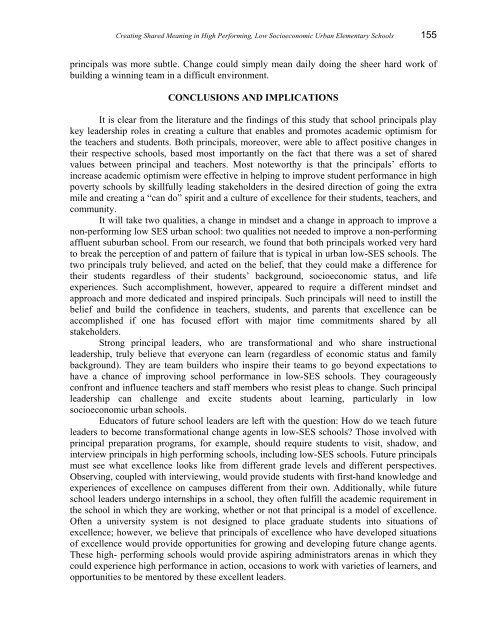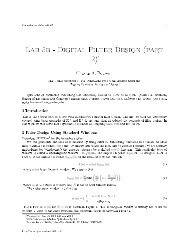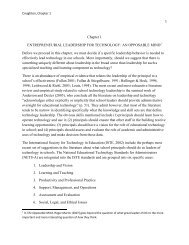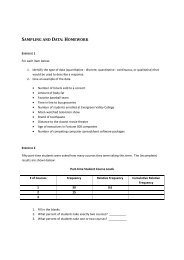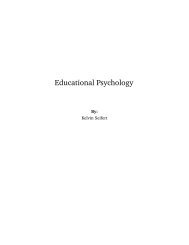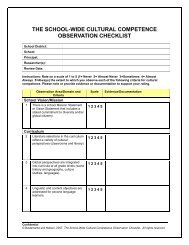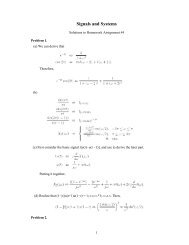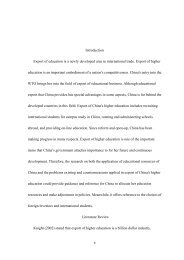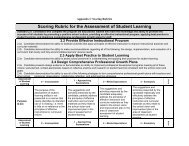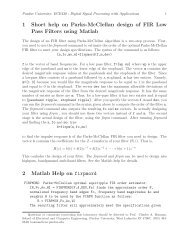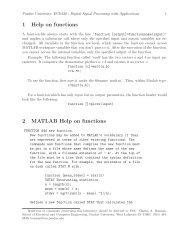Blazing New Trails - Connexions
Blazing New Trails - Connexions
Blazing New Trails - Connexions
You also want an ePaper? Increase the reach of your titles
YUMPU automatically turns print PDFs into web optimized ePapers that Google loves.
Creating Shared Meaning in High Performing, Low Socioeconomic Urban Elementary Schools 155<br />
principals was more subtle. Change could simply mean daily doing the sheer hard work of<br />
building a winning team in a difficult environment.<br />
CONCLUSIONS AND IMPLICATIONS<br />
It is clear from the literature and the findings of this study that school principals play<br />
key leadership roles in creating a culture that enables and promotes academic optimism for<br />
the teachers and students. Both principals, moreover, were able to affect positive changes in<br />
their respective schools, based most importantly on the fact that there was a set of shared<br />
values between principal and teachers. Most noteworthy is that the principals’ efforts to<br />
increase academic optimism were effective in helping to improve student performance in high<br />
poverty schools by skillfully leading stakeholders in the desired direction of going the extra<br />
mile and creating a “can do” spirit and a culture of excellence for their students, teachers, and<br />
community.<br />
It will take two qualities, a change in mindset and a change in approach to improve a<br />
non-performing low SES urban school: two qualities not needed to improve a non-performing<br />
affluent suburban school. From our research, we found that both principals worked very hard<br />
to break the perception of and pattern of failure that is typical in urban low-SES schools. The<br />
two principals truly believed, and acted on the belief, that they could make a difference for<br />
their students regardless of their students’ background, socioeconomic status, and life<br />
experiences. Such accomplishment, however, appeared to require a different mindset and<br />
approach and more dedicated and inspired principals. Such principals will need to instill the<br />
belief and build the confidence in teachers, students, and parents that excellence can be<br />
accomplished if one has focused effort with major time commitments shared by all<br />
stakeholders.<br />
Strong principal leaders, who are transformational and who share instructional<br />
leadership, truly believe that everyone can learn (regardless of economic status and family<br />
background). They are team builders who inspire their teams to go beyond expectations to<br />
have a chance of improving school performance in low-SES schools. They courageously<br />
confront and influence teachers and staff members who resist pleas to change. Such principal<br />
leadership can challenge and excite students about learning, particularly in low<br />
socioeconomic urban schools.<br />
Educators of future school leaders are left with the question: How do we teach future<br />
leaders to become transformational change agents in low-SES schools? Those involved with<br />
principal preparation programs, for example, should require students to visit, shadow, and<br />
interview principals in high performing schools, including low-SES schools. Future principals<br />
must see what excellence looks like from different grade levels and different perspectives.<br />
Observing, coupled with interviewing, would provide students with first-hand knowledge and<br />
experiences of excellence on campuses different from their own. Additionally, while future<br />
school leaders undergo internships in a school, they often fulfill the academic requirement in<br />
the school in which they are working, whether or not that principal is a model of excellence.<br />
Often a university system is not designed to place graduate students into situations of<br />
excellence; however, we believe that principals of excellence who have developed situations<br />
of excellence would provide opportunities for growing and developing future change agents.<br />
These high- performing schools would provide aspiring administrators arenas in which they<br />
could experience high performance in action, occasions to work with varieties of learners, and<br />
opportunities to be mentored by these excellent leaders.


